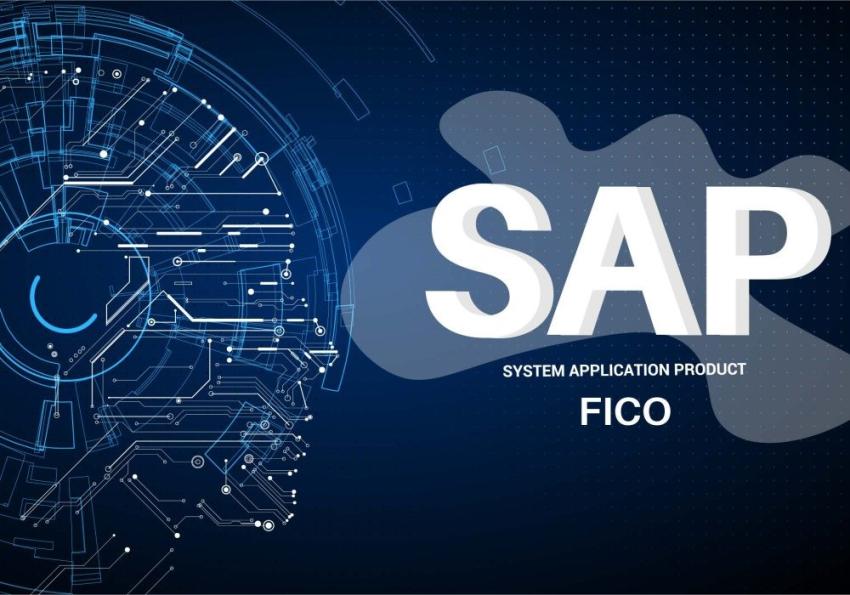SAP FICO Concepts

Introduction
SAP FICO stands for Financial Accounting and Controlling. It is a vital component of SAP ERP that enables companies to properly manage and simplify their financials. This SAP module combines financial reporting, control, and accounting to guarantee real-time visibility and correctness in financial data. For companies across sectors, SAP FICO is essential for decision-making, compliance, and operational efficiency. SAP FICO covers functions like General Ledger, Accounts Payable, Accounts Receivable, and Cost Management. The SAP FICO Online Training in India offers complete guidance to aspiring FICO professionals to understand various FICO components.
Read this section to learn more about each SAP FICO concept in detail.
Important SAP FICO Concepts
SAP FICO is a fundamental SAP ERP module designed to enable companies to effectively handle their financial data. It works with other modules to guarantee consistent financial reporting and processing.
For finance professionals trying to simplify business operations and guarantee compliance, understanding several key SAP FICO concepts is vital.
Below are the ten most important FICO concepts every professional should know.
-
General Ledger Accounting (G/L)
In SAP FICO, the G/L is designed to be the main repository for all financial activities. It guarantees real-time integration with other SAP systems by recording all financial transactions, including sales, purchases, and payroll.
-
Accounts Payable (AP)
This sub-module handles payments going out and vendor transactions. Integration with the materials management (MM) module is addressed alongside credit memos, automatic payment programs (F110), and invoice posting.
-
Accounts Receivable (AR)
AR handles consumer transactions, including credit control, incoming payments, and invoice processing. For integration with the Sales and Distribution (SD) module and tracking of outstanding customer balances, it is crucial.
-
Asset Accounting (AA)
Asset Accounting manages the fixed asset lifecycle—from acquisition to retirement. It supports asset depreciation, asset transfers, and reporting. MM and G/L integration guarantees uniformity in asset tracking.
-
Cost Center Accounting (CCA)
CCA lets companies keep an eye on expenses spent inside particular divisions or areas. It improves internal financial management, distributes budgets, and helps keep tabs on overhead costs.
-
Profit Center Accounting (PCA)
By dividing incomes and costs among various units, Profit Center Accounting assesses internal performance. It supports strategic planning and decentralized decision-making.
-
Internal Orders
Internal Orders in SAP FICO are used to track expenses for certain tasks or assignments. Tracking temporary expenses enables settlement to cost centres, projects, or assets after completion.
-
Controlling (CO)
The CO module helps internal decision-making processes. It offers comprehensive insight into cost control and performance metrics using elements like CCA, PCA, and profitability analysis (CO-PA).
-
Financial Statements (FS)
SAP FICO creates statutory financial statements like Balance Sheets, Profit & Loss Statements, and Cash Flow Statements. These can be created as per legal and management needs.
-
Document Splitting
Document splitting in SAP FICO is mainly used for segment reporting. It helps split line items according to profit centres, segments, or other dimensions. Additionally, it guarantees that financial statements present thorough and correct internal structures.
Above were the ten most important SAP FICO concepts. Professionals planning a career in finance and control processes must learn these 10 SAP FICO ideas from SAP FICO Training in Delhi. Knowing their integration and reporting features improves operational effectiveness. Additionally, knowledge of these skills guarantees improved decision-making for the organization.
SAP FICO Consultant Roles and Responsibilities
Using SAP ERP, an SAP FICO Consultant helps to oversee the financial accounting and control operations of a company. They oversee designing financial systems, comprehending business needs, and making sure SAP FICO modules are smoothly implemented and maintained.
These professionals are skilled in FICO tools like General Ledger (G/L), Accounts Payable (AP), Accounts Receivable (AR), Asset Accounting (AA), and Controlling (CO). Their main responsibility is to set the SAP FICO module. Through client engagement, the FICO consultants collect company's needs and convert them into functional requirements.
They also conduct user training, data migration, and system testing, therefore guaranteeing the solution matches corporate objectives. They offer continuous assistance, resolving problems and implementing needed system improvements or upgrades following deployment.
To guarantee the integration of the functions, SAP FICO specialists collaborate with technical staff (ABAP developers). Additionally, they follow the financial compliance guidelines, help with financial audits, and produce both basic and customized reports.
Consultants also help with user manuals, change management, and project documentation. Therefore, they must understand concepts like SAP tools, business process mapping, and accounting concepts.
Thus, an SAP FICO consultant helps to ensure correct and effective financial operations by bridging the gap between technical implementation and business demands. The FICO Certification is a valuable credential that opens doors to numerous opportunities for aspiring professionals.
Conclusion
SAP FICO effectively manages the financial and control systems of organizations. This SAP module offers tools for handling reporting, accounting, and performance monitoring. Aspiring FICO professionals must master the important SAP FICO concepts, including G/L, AP, AR, asset accounting, and cost management. Moreover, SAP FICO offers strong setup, testing, and user support. This helps companies maintain efficient financial operations.


